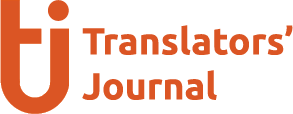
Are you weighing the pros and cons of freelance translation versus an in-house position? Whether you’re just starting your translation career or are considering a switch, understanding the unique benefits and challenges of each path is crucial.
Let’s dive into the details to help you decide which path is right for you!
Freelance Translator vs In-house Translator
A freelance translator is a self-employed professional who translates written content from one language to another. As a freelance translator you will work independently and you can take on projects from various clients whether they are individuals, businesses, or organizations.
On the other hand, an in-house translator is a professional who works for a specific company or organization as a full-time employee. As an in-house translator, you are typically part of a translation team and work on projects related to the company’s specific needs.
What Does it Mean to Work Freelance?
- Flexibility: As a freelancer translator you can remotely and are likely to enjoy the freedom to set your working hours.
- Autonomy: You have control over the projects you accept and can decline those that don’t align with your interests or expertise.
- Potential for Higher Earnings: As a freelancer, your higher earning potentials remain open as opposed to in-house roles.
- Isolation: Freelancing can be isolating. You may have to work longer periods without meaningful human interactions with your colleagues.
- Ownership: Freelancers are responsible for all aspects of their business, including accounting, marketing, and client management.
What Does it Mean to Work as an In-House Expert?
- Structure: In-house positions offer a more structured work environment. You have fixed working hours, a predefined workflow as well as you are also tied to an office either physically or remotely.
- You Don’t Control What You Work on: You don’t choose what type of text or what domain of text you translate on a day to day basis. Of course, you have a wide range of terms of reference when you join but you cannot choose on a daily basis or a per project basis.
- Steady Income: In-house translators typically have a more consistent income. You are stable in terms of getting a fixed income every month.
- Support: You often have access to resources and support from colleagues.
- Limited Flexibility: You may have less control over your workload and hours.
- Lower Pay: In-house translators generally earn less than freelancers.
- Employee Benefits: You enjoy professional development opportunities and employee benefits like paid annual leave, parenting leave, yearly bonus, yearly increment, and so on.
Key Activities of a Freelance Translator
The key activity of a translator is to translate. The amount of words or hours you work on actual translation is your actual productive hours for which you can bill. But as a freelance translator you will be doing a lot of non-translation tasks that help you run your business. These are the most frequent activities you will engage on a daily basis:
- Translation: You take written content and convert them from one language to another. Translation can include a range of services e.g. localization (= adapting a text to another culture), transcreation (= creative adaptation of the text), proofreading/ editing (= grammatical, syntactic, and semantic review).
- Research: Conducting research is critical to a freelance translator’s success. You will often need to conduct heavy research to understand the specific terminology and context of a particular subject or industry.
- Management & Communication: As a freelance translator, you have to in-charge of communicating with clients, managing projects, and fulfilling client expectations. From the beginning of a project to the successful closing of the project, you are the one to clarify requirements, discuss project timelines, and address any questions or concerns.
- Business Development: As a freelance translator, you need to consistently acquire new clients, manage relationships, and position and market yourself as a brand. Activities may include, market research, client outreach, setting pricing strategy, maintaining a website, managing social media, networking, etc.
Key Activities of an In-house Translator
The core activities of an in-house translator does not vary much from a freelance translator. The major difference is that you are not responsible for client acquisition and business development. Your monthly salary is taken care of by the employer and you focus solely on translation and the related tasks. You are likely to work on a wide range of language services tasks that are not limited to translation, localization or proofreading:
- Terminology Management: Maintaining and updating the company’s terminology databases.
- Collaboration: Working with other team members, such as project managers, designers, and marketing specialists.
- Project Management: Managing translation projects, including scheduling, budgeting, and resource allocation.
- Client Communication: Interacting with clients to clarify requirements and address any concerns.
Benefits of Freelance Translator Roles:
- Flexibility: You can set your own schedule and work-life balance.
- Variety: Work on diverse projects, from technical manuals to creative writing.
- High Earning Potential: Successful freelancers can earn significant income, especially in specialized areas.
- Independence: You’re your own boss, making decisions about your career.
- Remote Work: Work from anywhere with an internet connection.
- Continuous Learning: Exposure to various subjects and cultures.
Benefits of In-House Linguist Roles:
- Stable Income: In-house positions offer a fixed salary and regular paychecks, providing financial security.
- Benefits Packages: Many companies offer comprehensive benefits packages, including health insurance, retirement plans, paid time off, and sick leave. These benefits can significantly enhance overall compensation and job satisfaction.
- Collaborative Work: In-house linguists often work as part of a team, collaborating with other professionals such as project managers, editors, and subject matter experts.
- Career Advancement: In-house linguists have opportunities for career progression, such as promotions to team lead or project management roles.
- Leadership Opportunities: In-house linguists with strong project management skills may have the opportunity to lead projects, manage teams, and take on additional responsibilities.
- Skill Enhancement: Companies often provide resources and training to help linguists develop new skills, such as localization, machine translation, or terminology management.
- Strategic Planning: In-house positions often involve strategic planning and decision-making, which can be a valuable experience for career advancement.
- Regular Work Hours: In-house positions typically offer regular work hours.
- Reduced Stress: Unlike freelance work, in-house positions often have a more stable workload and less pressure to find new clients.
Challenges of Freelance Translator Roles
- Income Instability: Freelance translators face fluctuating workloads. Unlike in-house positions with a fixed salary, demand can vary, leading to unpredictable income. This makes financial planning challenging, especially during slow periods or market downturns.
- Isolation: Freelancers work independently, often without the social interaction of an office environment. This isolation can be tough, particularly for beginners, and may affect motivation and mental health over time.
- Administrative Tasks: Freelancers are not just translators but also business owners. They handle tasks like invoicing, taxes, client communication, and marketing. These non-translation duties can be time-consuming and take focus away from actual translation work.
- Constant Client Acquisition: Maintaining a steady client base is essential, but it can be exhausting. Freelancers must market themselves, follow up on leads, and constantly seek new clients, which can be stressful, especially during lean periods.
- Time Management: Freelancers juggle multiple projects with varying deadlines. Without a traditional office structure, they must manage their own schedules, which can lead to overworking or inefficiency if not handled well.
- Technical Challenges: Translators rely on various tools, and handling different software and file formats can be tricky. Keeping up with new tools and technologies can also be costly and time-consuming, especially without IT support.
- Ethical Dilemmas: Freelancers must ensure the confidentiality of sensitive materials and avoid ethical issues like plagiarism. Proper contracts and practices are essential to maintain trust and professionalism.
- Competition: The growing use of AI and the influx of new freelancers have intensified competition. Translators must differentiate themselves, maintain competitive rates, and highlight the value of human expertise over AI-generated translations.
Challenges of In-House Linguist Roles
- Limited Control Over Workload and Projects: In-house translators often have less control over their work compared to freelancers. With a set schedule, they may be assigned tasks that don’t align with their interests or expertise, leading to lower job satisfaction.
- Repetitive Tasks: In-house roles may involve repetitive work, such as translating similar types of documents, which can lead to boredom or burnout, especially if the variety of projects is limited.
- Adapting to Corporate Environment: In-house translators must adapt to a company’s culture and internal workflows, which can be frustrating if the work environment is rigid or doesn’t align with their preferences.
- Less Flexibility: In-house positions typically have fixed working hours and location requirements. While some companies offer remote options, the flexibility is usually less than that of freelance roles, which may be a downside for those seeking work-life balance.
Where to Find Freelance Translation Jobs
- Freelance Platforms: Platforms like Upwork, Freelancer, and PeoplePerHour are popular for finding freelance translation jobs. They allow you to create a profile, bid on projects, and connect with clients globally. Though competition can be tough, these sites provide a steady flow of work, especially if you’ve built a solid reputation.
- Job Boards: Specialized job boards like Proz and TranslatorsCafé cater specifically to translation professionals. These sites regularly post translation-related job listings from individuals, agencies, and businesses. The clients on these platforms understand the unique needs of the industry, making them ideal for targeted opportunities.
- Translation Agencies: Many translation agencies seek freelance translators, especially those with expertise in specific fields (e.g., legal, medical, technical). Agencies often offer ongoing or project-based work. You can find opportunities by reaching out directly to agencies or monitoring their career pages. Building strong relationships with agencies can lead to consistent, well-paid work.
- Referrals: Networking with clients and other translators is a powerful way to find freelance opportunities. Word-of-mouth referrals and repeat business are crucial for growing your freelance career. By delivering quality work and maintaining professional relationships, you can build a reputation that brings in new leads through referrals.
Where to Find In-house Translator Jobs
- LSP Websites: Language Service Providers (LSPs) are a common source for in-house translator positions. Many LSPs list job openings on their websites, offering both full-time and part-time roles, including positions in project management, terminology management, and specialized translation. Check these sites regularly for new opportunities.
- Job Boards: General job boards like Indeed, Glassdoor, and LinkedIn list a variety of positions, including in-house translator roles. Translation-specific job boards like Proz and TranslatorsCafé also feature both freelance and full-time jobs. These platforms often categorize translation roles, making it easier to find in-house positions.
- Networking: Networking is key to landing in-house translator jobs. Attend industry events, webinars, or local meetups to connect with professionals, LSPs, or potential employers. LinkedIn is also a valuable tool for networking, where engaging in relevant discussions can get you noticed by employers hiring for in-house positions.
- Translator Associations: Professional associations like the ATA (American Translators Association) or ITI (Institute of Translation and Interpreting) offer job boards for members. These boards list both freelance and in-house positions posted by companies that trust the association’s vetted members. Membership can enhance your credibility and provide access to job opportunities not found elsewhere.
Is it Better to be a Freelancer or an Employee?
The answer depends on your individual circumstances and preferences. I personally find freelance work more rewarding than in-house positions. The opportunity cost of in-house roles seems higher to me than freelance roles.
Ultimately, both freelancing and traditional employment have their own unique set of trade-offs. However, my strategy is to charge higher rates for longer-term commitments, regardless of whether the role is freelance or in-house. While it’s true that clients often offer lower rates for longer-term projects, I believe it’s important to consider the opportunity cost of your time and expertise.
However, it’s important to balance this strategy with the risk of having no work at all. Sometimes, it might be more beneficial to accept a lower rate for a guaranteed project than to risk being unemployed.
What is the Difference Between Freelance and Work From Home?
The difference is obvious. Freelancing indicates your relationship with the client. As a freelancer you are self-employed, you work with different clients and on different projects.
Usually you will work from home, or you can be a digital nomad. On rare occasions, it is possible you provide on-site freelance translation services.
Work from home doesn’t necessarily indicator what relationship you have with your client. You can be an in-house translator and work from home. It indicates the location from where you are doing your work, whether you do it as self-employed or as an employee.
Why do Freelancers Get Paid More?
Freelancers often possess niche skills or expertise that companies may not have in-house. Therefore, freelance translators are charged higher for their specialized skills.
By hiring freelancers, companies can save on costs like office space, equipment, and benefits by hiring freelancers.
Besides, freelancers often get paid more on an hourly basis because they are responsible for their own taxes, insurance, and benefits.
Frequently Asked Questions (FAQ)
1. What are the best platforms for finding freelance translation jobs?
The best platforms for freelance translation jobs include Upwork, Freelancer, PeoplePerHour, Proz, and TranslatorsCafé. These websites offer a variety of opportunities in different translation fields and allow you to connect with clients globally.
2. Can I find in-house translator jobs on general job boards?
Yes, you can find in-house translator jobs on general job boards like Indeed, Glassdoor, and LinkedIn. These boards list a wide range of positions, and many companies post translation-specific roles there. Additionally, specialized boards like Proz and TranslatorsCafé focus on translation jobs, including in-house positions.
3. How can I build a network to find freelance translation jobs?
Building a network is essential for finding freelance translation opportunities. Attend industry conferences, webinars, and local meetups to connect with other translators and potential clients. LinkedIn is also a great platform to network with professionals and showcase your skills.
4. Do translation agencies hire freelance translators regularly?
Yes, many translation agencies regularly hire freelance translators, especially those with specialized skills in fields like legal, medical, or technical translation. Reach out to agencies directly or check their career pages for open opportunities.
5. How do I find job listings from Language Service Providers (LSPs)?
Most LSPs list their open positions on their websites. You can check their career pages regularly for new job postings. Staying connected to LSPs and networking within the industry will also help you spot in-house opportunities as they arise.
6. What role do translator associations play in finding jobs?
Translator associations like the ATA or ITI provide job boards for members, listing both freelance and in-house opportunities from trusted companies. Being a member can enhance your credibility and give you access to exclusive job listings that may not be available on other platforms.
7. How can I stay competitive as a freelance translator?
To stay competitive, continue to refine your skills, build a solid portfolio, and stay updated on industry trends and tools. Networking, maintaining a strong online presence, and seeking referrals from satisfied clients will also help you stay ahead in a competitive market.
Are You Looking for Jobs in the Language Industry?
If you are looking for in-house jobs, you should check out Weekly Job Window.
Every week, we handpick in-house jobs for translators, interpreters, linguists, writers, editors, and localization professionals so you can stay updated without searching hundreds of listings spread across the internet.
You can access the latest jobs of the current week here. Feel free to bookmark it as well.
To get the full list every week to your inbox, subscribe.




